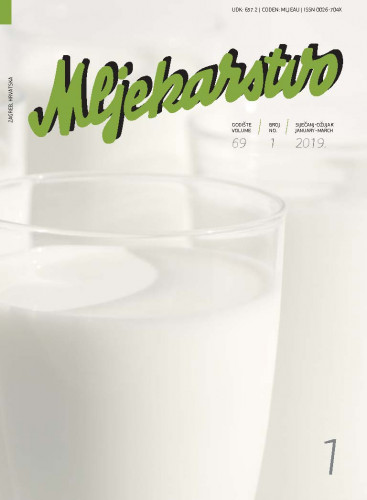Persistent organic pollutants, including polychlorinated biphenyls, may pose serious health hazard to consumers due to their lipophilic character as well as their high stability and toxicity. They are common in milk and also in dairy products. Therefore, to provide consumers with food of the lowest possible level of pollutants, it is important to estimate the influence of technological processes in milk and dairy products manufacture on changes in the contents of toxic PCB congeners. The PCB congeners content was determined using gas chromatography with mass spectrometry. Our study showed that yoghurt starter cultures turned out to be an effective tool in decreasing the toxicity equivalent of yoghurts. The presence of additional two starter cultures of bacteria Lactobacillus acidophilus and Bifidobacterium sp. In the A.B.T. bioyoghurt starter culture was most likely the reason of the highest efficiency of this culture to reduce the value of toxicity equivalent (TEQPCB) in bioyoghurts (reduction by nearly 50 %). However, none of the four tested starter cultures of yoghurts and bioyoghurts ensured complete biodegradation of any of the tested PCB congeners. These cultures contributed to a distinct reduction in contents of the PCB congeners in the finished products and, simultaneously, to a significant increase in PCB 28 and PCB 77, which may result from the degradation of more chlorinated congeners. In consequence it can improve the quality of fermented dairy products.; Postojani organski kontaminanti poput polikloriranih bifenila zbog lipofilnog karaktera, visoke stabilnosti te toksičnosti mogu predstavljati ozbiljan rizik za zdravlje potrošača. Oni se mogu nalaziti u mlijeku pa tako i u mliječnim proizvodima. Kako bi se potrošačima osigurala sigurna hrana s najmanjom mogućom razinom kontaminanata, važno je odrediti utjecaj tehnoloških postupaka koji se primjenjuju u preradi mlijeka i mliječnih proizvoda na promjene koncentracije toksičnih metabolita PBC-a. Koncentracije metabolita PCB-a određene su primjenom plinske kromatografije s masenom spektrometrijom. Ovo istraživanje pokazalo je da su jogurtne starter kulture učinkovite u snižavanju toksičnih metabolita u jogurtima. Prisutnost dvaju dodatnih sojeva - Lactobacillus acidophilus i Bifidobacterium sp. u starter kulturi A.B.T. bio-jogurta je najvjerojatnije razlog za najvišu određenu učinkovitost u redukciji koncentracije toksičnih metabolita (TEQPCB) u uzrocima bio-jogurta (redukcija za približno 50 %). Međutim, nijedna od ispitivanih starter kultura jogurta i bio-jogurta nije osigurala potpunu razgradnju ispitivanih metabolita PCB-a. Navedene starter kulture znatno su potpomogle redukciju koncentracije metabolita PBC-a u gotovim proizvodima, no istovremeno je zabilježen porast koncentracije metabolita PCB 28 i PCB 77, što može biti rezultat razgradnje metabolita višeg stupnja klorinacije. Zaključno, primijenjene kulture imaju potencijal u svrhu poboljšanja kvalitete fermentiranih mliječnih proizvoda.
Sažetak

 Mljekarstvo.com : časopis za unaprjeđenje proizvodnje i prerade mlijeka 69,1(2019) / glavna i odgovorna urednica, editor in chief Rajka Božanić.
Mljekarstvo.com : časopis za unaprjeđenje proizvodnje i prerade mlijeka 69,1(2019) / glavna i odgovorna urednica, editor in chief Rajka Božanić.